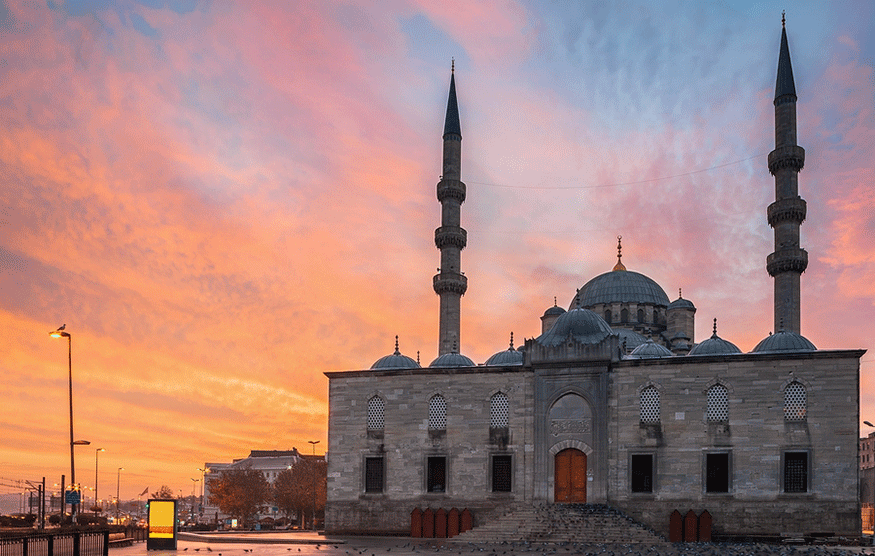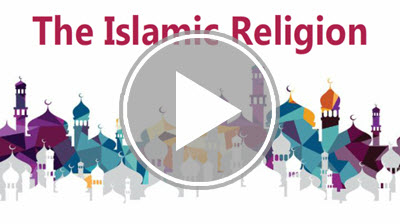
One contribution of the Islamic civilization is the amazing architecture as seen with the Yeni Valide Mosque in Istanbul, Turkey
The religion of Islam formed out of the harsh, desert environment on the Arabian Peninsula. Islam spread through the use of the Arabic language and diffusion along existing trading routes. In part, the powerful society led by Muslims helped bring stability and community to the Arab and North African people in the absence of Roman or Persian power structures.
In this module, you will examine the origins, beliefs, and customs of Islam to gain an understanding of this monotheistic faith and its history. Then, you will learn how Islam spread from the Arabian Peninsula throughout the Fertile Crescent, into northern Africa, Spain, and parts of Europe. The Islamic faith has changed over time and spread into different regions. During this expansion, the religion diversified by splitting into two sects, Sunni and Shi'a. Islam is still a fast-growing religion. In fact, as of 2010, there are approximately 1.6 billion practicing Muslims throughout the world. Finally, you will explore contributions of the early Islamic civilization. Islamic advancements in architecture, language, sharing of knowledge, medicine, navigation, and literature all helped shape the world in which you live today.

